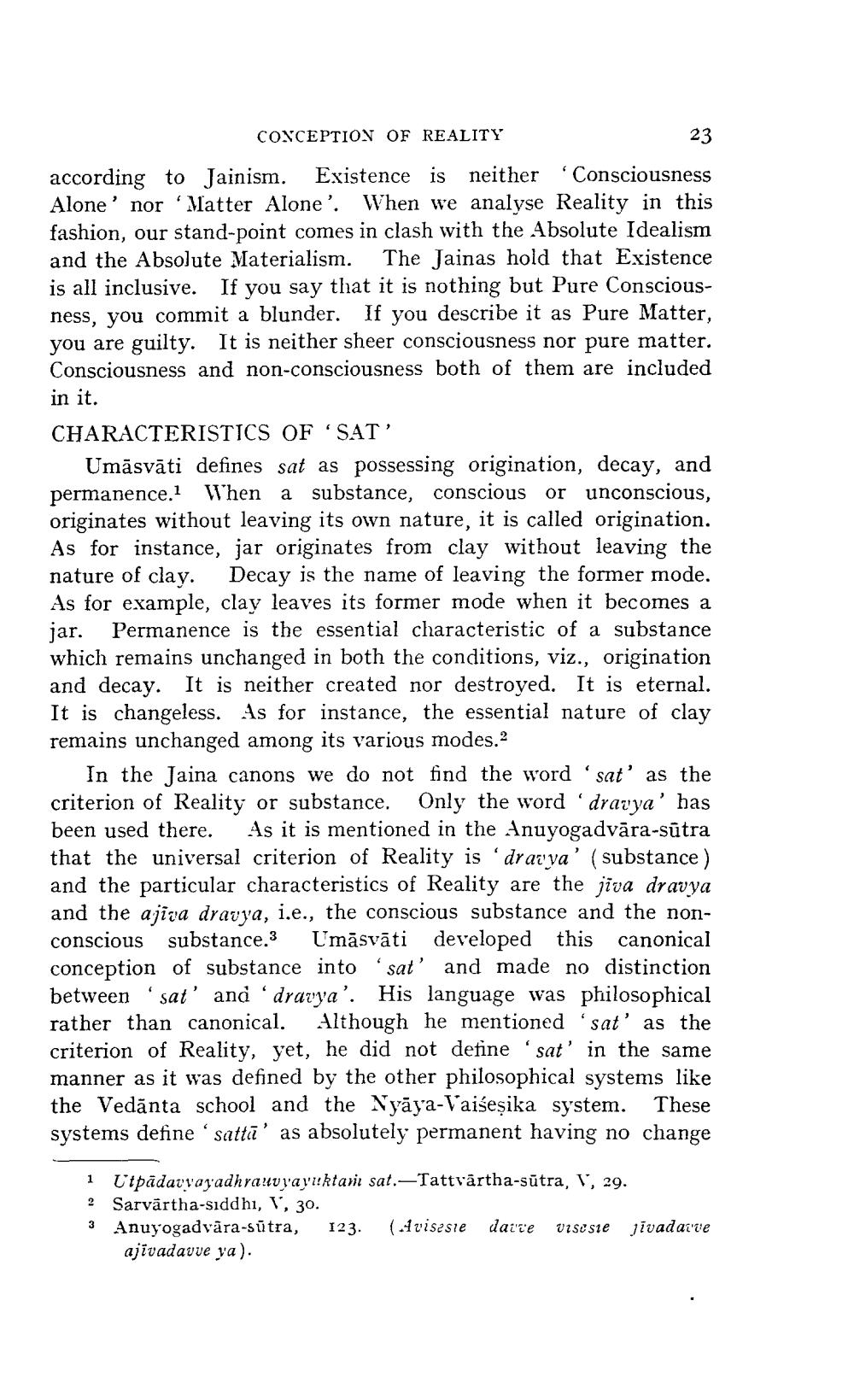________________
CONCEPTION OF REALITY
Consciousness
according to Jainism. Existence is neither Alone' nor 'Matter Alone'. When we analyse Reality in this fashion, our stand-point comes in clash with the Absolute Idealism and the Absolute Materialism. The Jainas hold that Existence is all inclusive. If you say that it is nothing but Pure Consciousness, you commit a blunder. If you describe it as Pure Matter, you are guilty. It is neither sheer consciousness nor pure matter. Consciousness and non-consciousness both of them are included in it.
23
CHARACTERISTICS OF 'SAT'
Umāsvāti defines sat as possessing origination, decay, and permanence. When a substance, conscious or unconscious, originates without leaving its own nature, it is called origination. As for instance, jar originates from clay without leaving the nature of clay. Decay is the name of leaving the former mode. As for example, clay leaves its former mode when it becomes a jar. Permanence is the essential characteristic of a substance which remains unchanged in both the conditions, viz., origination and decay. It is neither created nor destroyed. It is eternal. It is changeless. As for instance, the essential nature of clay remains unchanged among its various modes.2
1
In the Jaina canons we do not find the word 'sat' as the criterion of Reality or substance. Only the word 'dravya' has been used there. As it is mentioned in the Anuyogadvāra-sutra that the universal criterion of Reality is 'dravya' (substance) and the particular characteristics of Reality are the jiva dravya and the ajiva dravya, i.e., the conscious substance and the nonconscious substance.3 Umāsvāti developed this canonical conception of substance into 'sat' and made no distinction between 'sat' and 'dravya'. His language was philosophical rather than canonical. Although he mentioned sat' as the criterion of Reality, yet, he did not define sat' in the same manner as it was defined by the other philosophical systems like the Vedanta school and the Nyaya-Vaiśeşika system. These systems define satta' as absolutely permanent having no change
Utpadavvayadhrauvyayuktam sat.-Tattvärtha-sutra, V, 29.
2 Sarvärtha-siddhi, V, 30.
3
Anuyogadvara-sūtra, ajivadavve ya).
123. (Aviseste davve visesie jivadavve




